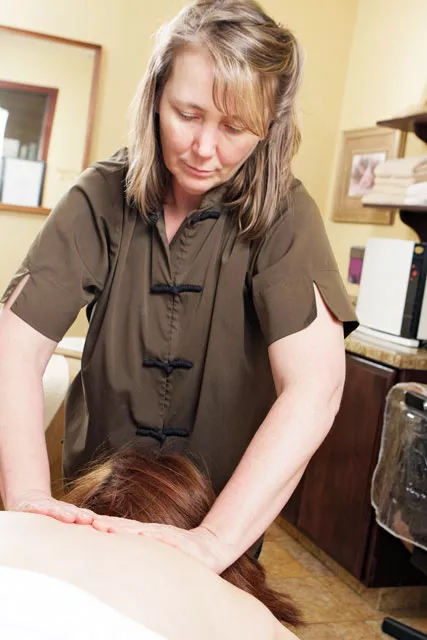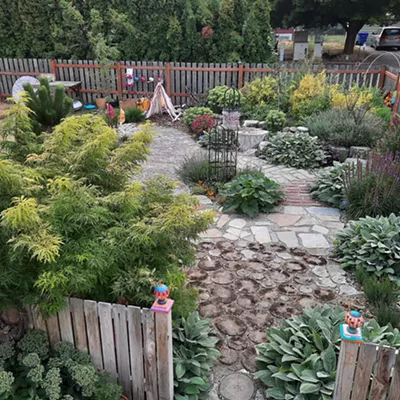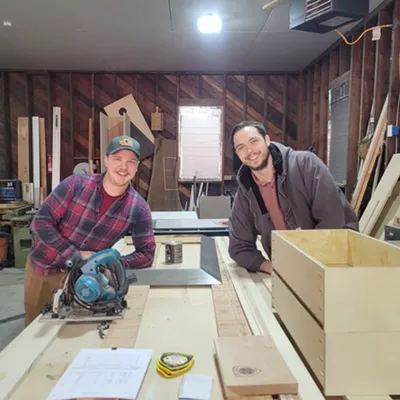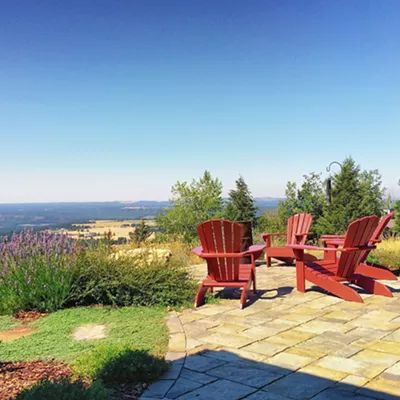
“One of the things I teach is that we’re not physically designed to live the type of lifestyles that we do,” says Jeane Plastino-Wood, director of the American Institute of Clinical Massage. “As a result, we see more stress disorders in clinic than ever before.”
Her practice and teaching clinic in Post Falls, Idaho, treats more than 150 people each day. Plastino-Wood attributes an onslaught of disorders that plague not only working generations, but also youth and elderly, to the over-stressed nature of modern life.
“I don’t know how we survive sometimes,” she says. “Collectively, we are fatigued. We have the largest amount of digestive disorders and the highest number of reproduction disorders.”
Stresses from work, finances and relationships may not have plagued our ancient ancestors, but our bodies respond to stressors the same way theirs did — by activating the sympathetic nervous system that produces the familiar heart-pounding preparation for a “fight or flight” response. In this state, the body is flooded with cortisol, a stress hormone, which acts to slow the digestive system and constrict veins. All well and good if you are being chased by an angry wooly mammoth, but not too productive for the types of stressors humans face today.
Stress can induce emotional symptoms of depression, insomnia and anxiety that weigh on the outward and inward behavior of individuals, but it is also physically apparent in their backs and necks and shoulders.
That’s where bodywork comes it.
“Massage calms the system and gives people a state of wellbeing,” Plastino-Wood says. “It takes you to the parasympathetic or resting state. Because of this, the body’s cortisol levels drop, circulation increases, septic toxins are released from the muscles, and endorphins are released.”
The results are sometimes obvious from the moment a client hits the table, Plastino-Wood says. Sometimes one long stroke of a hand down the center of the back is enough to bring people to tears.
“People need to have massage,” Plastino-Wood says. “The amount of stuff we hold inside and carry on our shoulders is just too stressful.”
What the World Needs Now
If more robust touch is not for you, a lesser-known form of hands-on therapy called Reiki might be. A Japanese touch therapy, Reiki is a form of energy work that generally uses very gentle, hands-on touching to provide mind, body, emotional and spiritual healing. Some practitioners even use a hands-off therapy, holding their hands a small distance from the client.
Naturopathic physician Philip Faler says he’s been using Reiki for nine years. At his integrated medical practice Wholey Healing, in Spokane Valley, it’s become a staple in his practice.
“My mission is to bring a good blend of integrated medicine with both Western and alternative therapies,” he says. “I use the right tool for the right job. When people need drugs, I use drugs. When people need energy therapy, I use energy therapy.”
Faler says he’s thought a lot about what stress is actually made of, and for him what it all boils down to is fear. “It can be colored with different shades — humiliation, shame or stress — but it’s all fear,” he says.
Alternatively, he sees compassion, joy and kindness as love in one form or another. “Reiki is a very loving energy, so if you look at it from this dichotomy… Stress is a manifestation of fear, and Reiki is spending time in a loving atmosphere,” he says. The day-to-day interactions people face with themselves and with one another are tumultuous, Faler says, leaving fight-or-flight systems perpetually turned on.
“Stress is so much of illness,” he says. “Yet … it’s perceptual and can be changed. The negative thought patterns and repeated negative behaviors of stress can be controlled, and Reiki is a potentiator.
“The wear and tear of life is going to create disorganization in the body’s energy fields, and that’s normal,” he says. “Reiki heals by organizing and energizing the fields of the body as well as the energetic channels.” He says clients report benefits such as increased stamina, more positive thought processes and improved general wellbeing.
Reiki is taught and used as form of self-empowerment, so that patients may affect their own positive and negative energy and, therefore, stress levels.
“My goal is to empower people to take care of their own health,” Faler says. “The more people who are attuned receive and practice Reiki, the more relaxed and loving the world will become. And the world needs it.”














